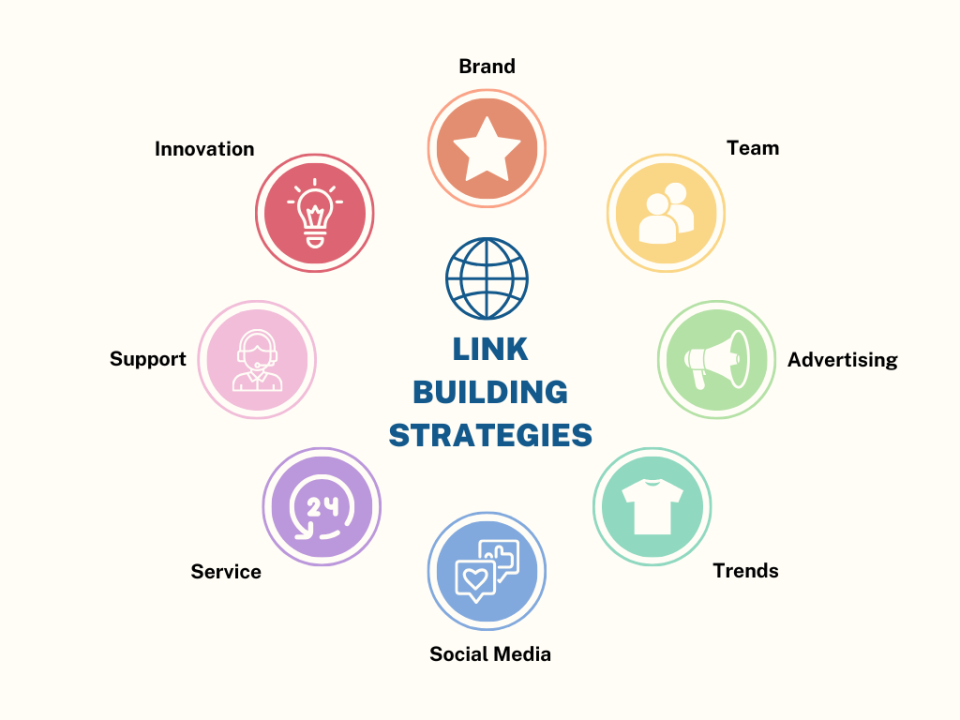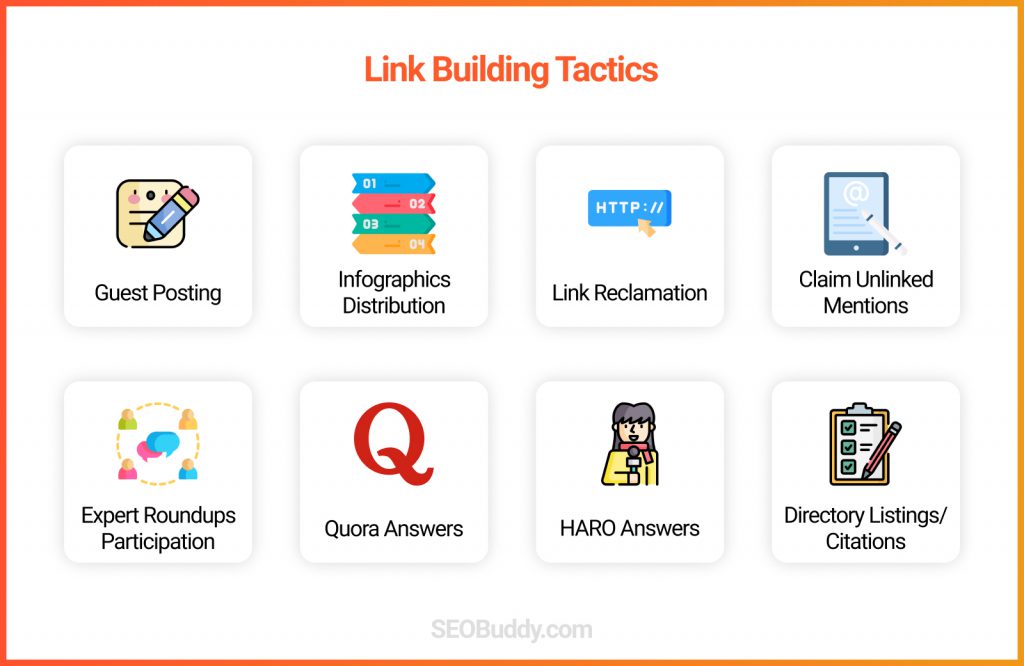Uncover the mystery behind link reclamation and how it can boost your website’s SEO and online presence. Learn more now!

Image courtesy of via DALL-E 3
Table of Contents
Introduction to Link Reclamation
Have you ever wondered how websites appear on the first page of your search results when you look for something on the internet? That’s where the magic of SEO (Search Engine Optimization) comes in. And one important aspect of SEO is something called “link reclamation.” Let’s dive into the world of link reclamation and unravel its significance for websites.
What is a Link?
Before we delve into link reclamation, let’s understand what a link is. A link, also known as a hyperlink, is like a bridge that connects one web page to another. You can think of it as a clickable shortcut that takes you from one page to another with just a tap or click.
Why Links Are Important
Links play a crucial role in the world of websites. They help search engines like Google understand the relevance and credibility of a site. The more quality links a website has, the higher it may rank in search results. In simple terms, links are like votes of confidence from one website to another, showing that the content is valuable and worth sharing.
Introduction to Link Reclamation
Now, let’s talk about link reclamation. Link reclamation is the process of reclaiming or restoring backlinks that may have been lost or broken. Backlinks are links from other websites that direct users to your site. When these links are lost or broken, it can negatively impact your website’s SEO performance. Link reclamation involves identifying these lost links and taking steps to fix or replace them to maintain the flow of “link juice” to your website.
How Links Disappear
Links on websites can disappear for various reasons, which can affect the overall performance and SEO of a site. Understanding why links disappear is crucial in maintaining a healthy web presence.
Website Changes
When a website undergoes updates or restructuring, it can lead to the unintentional breakage of links. This happens when the URL structure is altered, causing previously working links to no longer point to the correct destination. It’s important to be mindful of these changes to prevent link issues.
Deleted Pages
Another common reason for disappearing links is the removal of content or entire pages from a website. If a page that was linked to by other sites is deleted, those links become broken. It’s essential to consider the impact of content removal on your site’s external linking profile.
External Website Changes
Changes on external websites can also result in broken backlinks for your site. If a website that previously linked to you changes its URL structure or removes content, the links pointing to your site may become broken. Monitoring external website changes can help in identifying and addressing these link issues.
Finding Broken Links
To find broken links on your website, you can start with a manual search. This involves going through your site’s content page by page and clicking on each link to see if it leads to the correct destination. If a link is broken, it won’t take you to the intended page, but instead show an error message.

Image courtesy of www.linkedin.com via Google Images
Using SEO Tools
Alternatively, you can use SEO tools specifically designed to help you identify broken links more efficiently. Tools like Ahrefs, SEMrush, or Moz can quickly scan your website and highlight any broken links it finds. These tools not only save time but also provide detailed reports on the health of your website’s links.
Ways to Reclaim Links
One effective way to reclaim lost links is by reaching out to other website owners. Politely contacting them and requesting a fix for the broken link can often lead to successful outcomes. Remember to provide the correct URL that needs to be restored and explain why this link is valuable for both parties.
Updating Your Content
Another strategy to reclaim lost links is by updating and restoring deleted content on your website. By bringing back valuable information that was once removed, you can attract backlinks that were previously lost. This not only helps with link reclamation but also enhances the overall quality and relevance of your website.
301 Redirects
Utilizing 301 redirects is a smart way to replace broken links with functioning ones. When a particular page on your website no longer exists but has backlinks pointing to it, setting up a 301 redirect will automatically send visitors to a relevant page. This ensures that link juice is preserved and redirects traffic seamlessly.
Preventing Link Issues
In order to keep your website running smoothly and maintain the integrity of your links, it is crucial to take proactive steps to prevent link issues in the first place. By following these tips, you can avoid the headache of dealing with broken or lost links down the road.
Regular Audits
One of the best ways to prevent link issues is by conducting regular link audits on your website. By reviewing your links and checking for any potential problems, you can catch issues early on before they escalate into larger problems. Make it a habit to regularly check your links to ensure they are all working correctly.
Consistent Updates
Another important aspect of preventing link issues is to keep your website’s content and structure up to date. By regularly updating your content and ensuring that your website is well-maintained, you can reduce the likelihood of links becoming broken or lost due to outdated information. By staying on top of updates, you can keep your website running smoothly and prevent link issues before they arise.
Benefits of Link Reclamation
Link reclamation plays a crucial role in enhancing your website’s SEO performance. When you reclaim lost or broken links, you are essentially telling search engines that your site is trustworthy and credible. By fixing these link issues, you are ensuring that your website is seen in a positive light by search engines, which can result in higher rankings for your content.

Image courtesy of backlinkmanager.io via Google Images
Increased Traffic
One significant benefit of successful link reclamation is the potential increase in traffic to your website. When broken links are fixed, users are no longer met with frustrating dead ends when trying to access your content. This smooth navigation experience encourages visitors to stay longer on your site and explore more of what you have to offer, ultimately leading to a boost in traffic.
Common Challenges and Solutions
One common challenge in the link reclamation process is reaching out to website owners to request link fixes. Sometimes, website owners may not respond to your messages or may take a long time to address the issue. In such cases, it’s essential to be persistent and follow up with polite reminders.
Identifying the Right Pages
Another challenge faced during link reclamation is correctly identifying which pages on your website need their links fixed. This can be tricky, especially if you have a large website with numerous pages. To tackle this problem, it’s helpful to use tools that can scan your website and pinpoint pages with broken links, making the process more efficient and targeted.
Conclusion
In conclusion, link reclamation plays a vital role in maintaining the health and success of a website. By understanding what link reclamation is and why it is important, website owners can take proactive steps to improve their SEO performance and enhance their online presence.

Image courtesy of seobuddy.com via Google Images
Recap of Link Reclamation
Link reclamation involves the process of identifying and restoring broken or lost links on a website. This helps in ensuring that the website maintains a strong online presence, improves its search engine rankings, and attracts more visitors.
Final Thoughts
Prioritizing link reclamation efforts is crucial for website owners looking to maximize their online visibility and enhance their SEO performance. By regularly checking for broken links, reaching out to other website owners for link fixes, and updating content, website owners can reap the benefits of a well-maintained link profile.
Want to turn these SEO insights into real results? Seorocket is an all-in-one AI SEO solution that uses the power of AI to analyze your competition and craft high-ranking content.
Seorocket offers a suite of powerful tools, including a Keyword Researcher to find the most profitable keywords, an AI Writer to generate unique and Google-friendly content, and an Automatic Publisher to schedule and publish your content directly to your website. Plus, you’ll get real-time performance tracking so you can see exactly what’s working and make adjustments as needed.
Stop just reading about SEO – take action with Seorocket and skyrocket your search rankings today. Sign up for a free trial and see the difference Seorocket can make for your website!
Frequently Asked Questions (FAQs)
What is link reclamation?
Link reclamation is the process of reclaiming or restoring lost or broken links on a website. It involves identifying and fixing links that no longer work due to changes in web pages or external websites. By reclaiming these links, websites can improve their SEO performance and ensure a better user experience for visitors.
Why are broken links bad?
Broken links can have a negative impact on a website in several ways. Firstly, they can harm the user experience by leading visitors to error pages, frustrating them and potentially causing them to leave your site. Secondly, broken links can also affect your website’s SEO rankings, as search engines like Google may penalize sites with too many broken links. Additionally, broken links can hinder the flow of link juice within your website, affecting the overall authority and credibility of your site.
How often should I check for broken links?
It is recommended to conduct regular audits to check for broken links on your website. Depending on the size and complexity of your site, you may choose to perform these audits monthly, quarterly, or biannually. By monitoring and fixing broken links consistently, you can prevent potential issues from occurring and ensure that your website remains healthy and optimized for both users and search engines.







